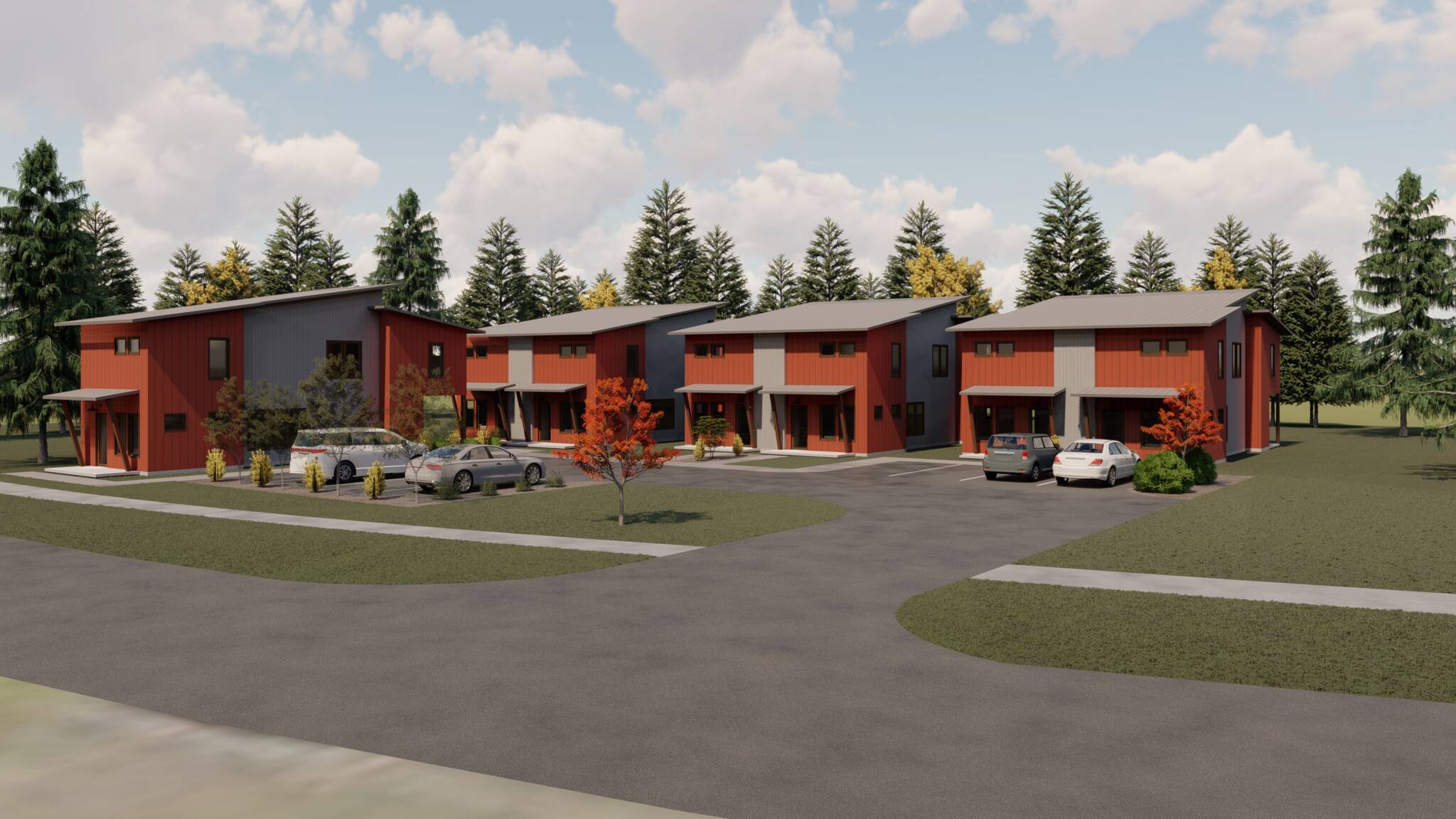The launch of what might be one of Langley’s biggest affordable housing projects to date is set.
Habitat for Humanity of Island County is planning to build seven townhomes, the organization’s first-ever project within Langley city limits.
Though no ground has been broken yet, a project launch celebration is slated for 4 p.m. on Thursday, May 5 at the 843 Third Avenue location across the street from St. Hubert Catholic Church.
State Representatives Dave Paul and Greg Gilday, Langley Mayor Scott Chaplin and other community members will be present at the momentous event.
“I am extremely happy to see this project moving forward,” Chaplin said. “It is a great start towards meeting Langley’s housing needs.”
Kathy Blair, the resource development director for Habitat for Humanity of Island County, said the Heron Park Townhomes project has hit some snags since its inception, but now finally has some momentum.
To date, the organization has built 54 homes in Island County, the majority of which have been concentrated in North Whidbey. Heron Park Townhomes is one of the biggest projects Habitat for Humanity has ever attempted.
“Seven units doesn’t seem like a lot but if you consider the population of Langley, percentage-wise, it’s a pretty good number, and it’s a place to start,” Blair said.
Before ground is broken, environmental impact studies need to be performed and final plans and permits must be approved. The property does not have infrastructure installed yet.
“There’s just so much to do before we even start digging. I want to do it tomorrow,” Blair said with a laugh.
The townhomes will each have three bedrooms and one and a half bathrooms and measure around 1,500 square feet.
Homeowners have not yet been selected for the proposed dwellings.
Blair explained that prospective homeowners must go through a rigorous application process to be considered. Potential buyers must live or work in Island County, earn 30-80% of Island County’s median income and contribute 250 hours of “sweat equity,” among other requirements. A committee uses a matrix to evaluate each applicant.
The application process has not yet opened for the Heron Park Townhomes, but Blair is expecting plenty of interest.
“We’re excited,” she said. “Those businesses down in Langley are just struggling with finding workers because there’s nowhere to live.”
The state legislature approved Paul’s request of $875,000 to begin the project.
Paul said it is remarkable that the local community project, which is part of the state’s capital budget, received as much funding as it did. On average, other local community projects received around $250,000.
“Workforce housing is a dire need in Island County,” Paul said. “Folks on the south end of the island have reported for years that this problem is especially acute. You have folks that turn down jobs, say with the South Whidbey School District, because they can’t afford to live in the community.”
Orin Kolaitis, CEO of Habitat for Humanity of Island County, explained that the $875,000 will cover costs related to site plans, townhouse designs and infrastructure work. It will also pay off the loan from the purchase of the property, which happened in 2017.
The project is currently in site development and ground could be broken as soon as the end of this year.
“We’ve very excited and feel blessed to have the partnership with the city of Langley,” Kolaitis said.
The project has also received a grant from the state Department of Commerce totaling $110,875. Langley Director of Community Planning Meredith Penny explained that the purpose of the grant is to cover waived system development charges — known as participation fees — for new affordable housing projects or to fund sewer, water or stormwater improvements needed to support new affordable housing projects.
Before the grant contract can be signed, a fee waiver ordinance will need to be drafted, and the fees formally waived for the development.
Donations are still needed to build the permanently affordable homes, which come at a higher expense than any of the other current projects. Habitat for Humanity of Island County has established a goal of $500,000 on its website, with $15,000 raised so far. To donate, visit islandcountyhabitat.org/heron-park-townhomes.



